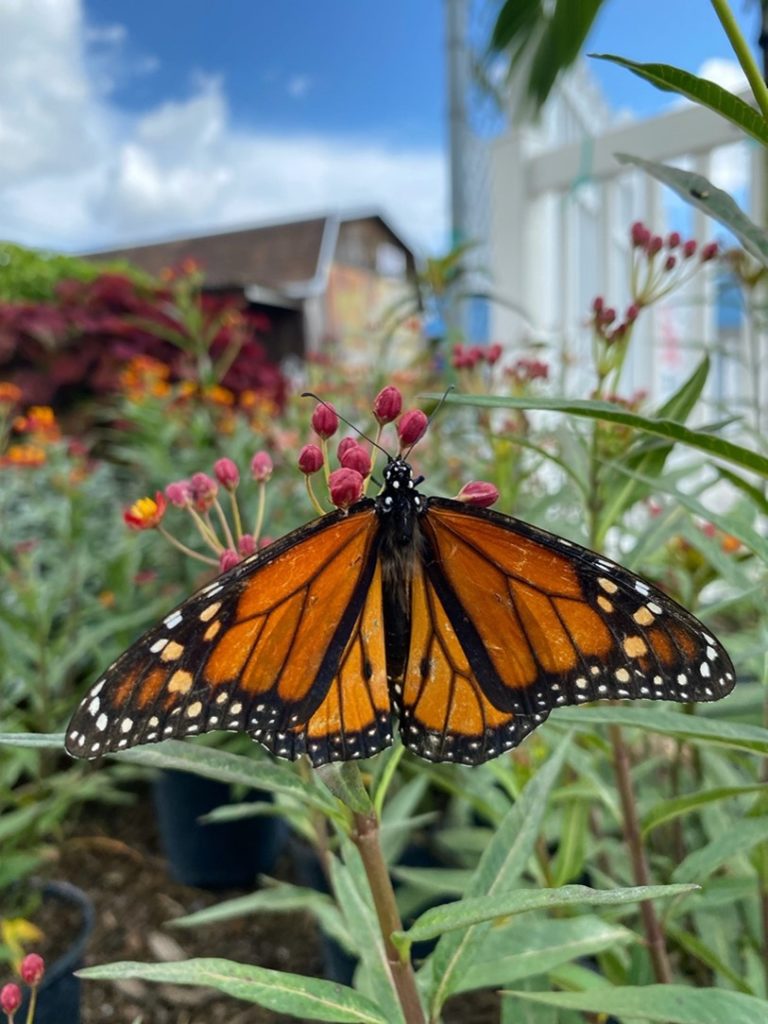By Mason Moore
ST. PETERSBURG—Have you ever wondered why you may be seeing fewer monarch butterflies?
Well, the monarch butterfly, also known as its scientific name Danaus Plexippus, is struggling to successfully make its annual migration to the west. But there are ways Tampa Bay locals, including college students, can help the species along with other important insects.
The International Union of Conservation for Nature reported that “monarch butterflies’ population have been declining rapidly over the last 40 years due to issues such as climate change, disease, and harmful pesticides.”
Butterflies are one of the most important and helpful pollinators alongside other insects. And just simply planting a native pollinating plant and reducing your use of chemical pesticides in the yard or garden can help save them from endangerment.
Monarchs are slowly losing their host plant called milkweed, on which they feed and lay their eggs. It is encouraged to plant only native milkweed according to where you live. If not, it places the butterflies in areas they typically wouldn’t be, and they are prone to freezing.

Dale McClung is the owner of the Florida Monarch Butterfly Farm in St. Petersburg. The farm has been in business supplying local butterflies since 1996, up until this year when McClung decided to shut down the farm to go into his retirement.
He said that the best thing to do is, “Create habitats. Plant milkweed for monarchs. Plant other host plants for other butterflies and moths.”
Some St. Petersburg plant shops that sell Florida native milkweed for butterflies are Dolin’s Garden Center at 801 62nd Ave N. and Terah Gardens at 200 49th St. N.
In Tampa, Citrus Park Landscape Nursery at 8334 Gunn Highway also sells native milkweed.
Planting native milkweed gives monarch butterflies food and energy, but it also gives a safe place for them to lay their eggs after they reproduce.
McClung advocated for protecting other insects that are on the decline as well, such as moths, who don’t get as much love as butterflies.
“Insects, in general, are in decline, not just butterflies. If you want to bring butterflies to your yard, simply plant the right plants. Nobody thinks of moths, but they’re important too. There are many more moth species than butterflies, but they lack the good PR butterflies receive,” McClung said.
The USF St. Petersburg Garden Club has big plans to help the monarch population this year.
“I hope that this is the year we get the RHO garden together because I heard many years ago it used to be a great and wonderful place to get free herbs and fruit, I definitely want to bring that back,” club president Lucinda Duah said.
Lucinda plans to reach out to an organization called monarchwatch.org, which sends free milkweed plants to schools and nonprofits. They hope to create a butterfly garden flourishing with milkweed along with other native plants in the RHO garden at USFS within the near future.
“I want to help put out some signs in the garden and around the school to educate people. Because when they’re not aware, they just don’t care” Lucinda said.
